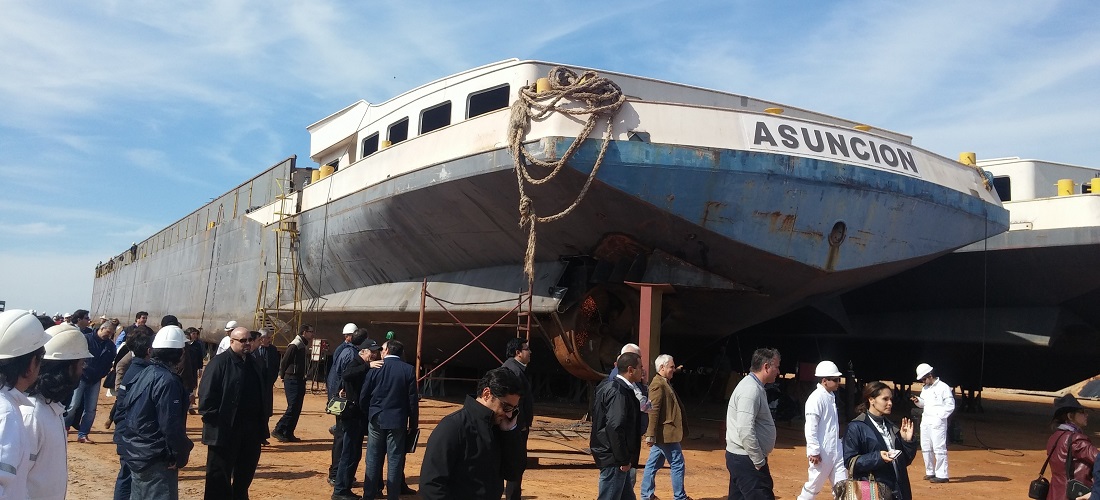
Paraguay shipbuilding industry faces difficulties
Aug, 06, 2019 Posted by datamarnewsWeek 201933
The shipbuilding industry in Paraguay is not experiencing its best moment due to falling commodity prices, especially that of the iron ore.
Guillermo Ehreke, the owner of La Barca del Pescador shipyard, says the soybean has had good and bad years, which was not enough to solve the problem of a large number of standing boats available for use. “In addition to the fact that soy is a seasonal product – it is transported in January, June, and July – some harvests were not good, causing the transport to not be used to its full potential,” he said.
Another problem was the decrease in fuel imports, which eventually impacted transportation activities. In the first semester of this year alone, Paraguay imported 14% less fuel than the previous year.
Imports and exports of containerized cargo were also affected by the fragile economies of Argentina and Brazil.
Paraguayan Shipbuilding Industry Capacity
Regarding the construction capacity of the shipbuilding industry in Paraguay, Ehreke says it is intact from an infrastructure standpoint. For the professional, it is necessary to keep the human resources updated and with paid salary.
He acknowledged that Paraguay has the capacity to process between 3,000 to 4,000 tons of steel per month without much effort, meaning it can build six large Jumbo barges without problems. Ideally, for him, future ships would be built in the country, which has the quality and capacity to do so.
Brazilian company invests in shipbuilding
Meanwhile, in Brazil, the Posidonia Shipping, which specializes in cabotage and long haul activities, has just invested around R$15m in the construction and rehabilitation of two vessels, the Posidonia Bravo and Santa Maria.
Bravo is the company’s first vessel built with its own resources and can perform special mining operations and transport of minerals in the ocean. With a capacity to carry up to 3,000 tons of cargo, it has a sustainable disposal system and 55,000 m3 daily dredging pumps.
The Santa Maria general cargo ferry, which also has a capacity of 3,000 tons and was built in 2005, underwent restoration and classification work to transport umbilical reels (flexible connections for oil transfer between vessels) in cabotage.
Posidonia should close 2019 with revenues of R$100m, representing a 50% increase over the previous year. From January to June this year, the volume of cargo carried by the company reached about 500,000 tons.
Sources: Paraguai Fluvial and Posidonia
-
Ports and Terminals
Jul, 10, 2019
0
Port of Buenos Aires relocates Paraguayan free zone
-
Datamar EN
Aug, 01, 2019
0
DataLiner: Brazil’s container throughput rises in June
-
Grains
May, 24, 2019
0
African swine flu in China will impact Argentina’s soybean exports
-
Other Logistics
Jul, 22, 2019
0
Brazil and Paraguay launch licitation for Bioceanic Bridge


